Home>Articles>How Long Will Cooked Chicken Last In The Freezer
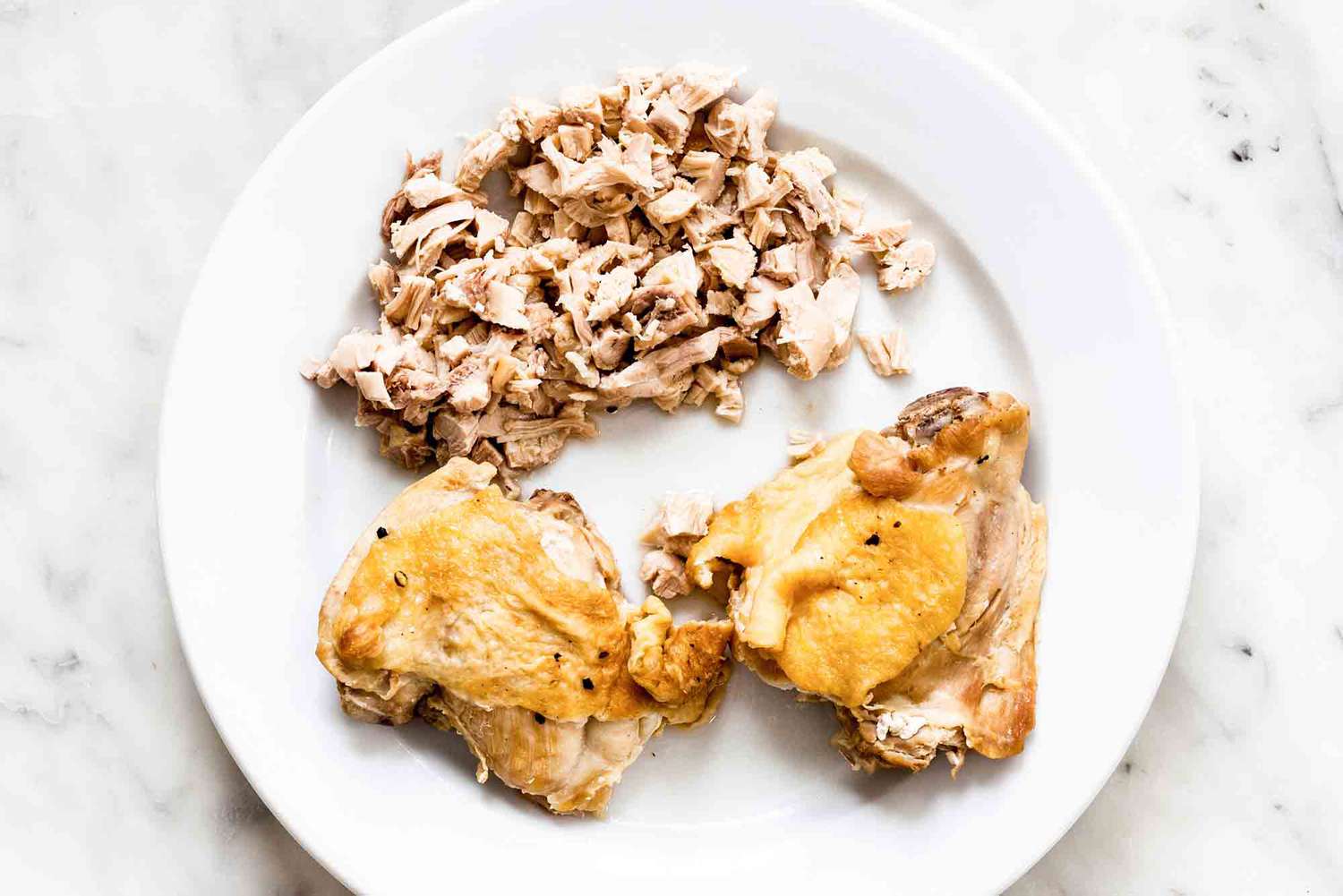

Articles
How Long Will Cooked Chicken Last In The Freezer
Modified: February 26, 2024
Discover how long cooked chicken can be safely stored in the freezer. Read our informative articles on freezer storage for cooked chicken.
(Many of the links in this article redirect to a specific reviewed product. Your purchase of these products through affiliate links helps to generate commission for Storables.com, at no extra cost. Learn more)
How Long Will Cooked Chicken Last In The Freezer
One of the biggest challenges faced by home cooks is determining how long cooked chicken will last in the freezer. Proper storage and handling of cooked chicken are crucial to maintaining its quality and ensuring its safety for consumption. In this article, we will explore the factors that affect the shelf life of cooked chicken in the freezer, recommend storage times, provide tips for freezing chicken, discuss signs of spoilage, and offer best practices for using frozen cooked chicken.
Key Takeaways:
- Properly storing and handling cooked chicken in the freezer is essential for maintaining its quality and safety. Factors like temperature, packaging, and handling play a crucial role in extending its shelf life.
- Identifying signs of spoilage in cooked chicken is crucial for food safety. Unusual odors, texture, appearance, and the presence of mold are indicators that the chicken has spoiled and should not be consumed.
Read more: How Long Can Chicken Last In Freezer
Factors Affecting the Shelf Life of Cooked Chicken in the Freezer
Several factors can influence how long cooked chicken will last in the freezer:
- Temperature: The freezer should be set at 0°F or below to maintain the quality and safety of the chicken. Fluctuating temperatures can lead to freezer burn and spoilage.
- Quality of the chicken: Freshly cooked chicken will have a longer shelf life compared to chicken that was already close to its expiration date before cooking.
- Packaging: Proper packaging, such as airtight containers or freezer bags, can help prevent moisture loss and freezer burn.
- Handling: It is essential to handle cooked chicken with clean hands and utensils to avoid contamination that can lead to bacterial growth.
Recommended Storage Time for Cooked Chicken in the Freezer
While freezing can extend the lifespan of cooked chicken, it is still recommended to consume it within a certain timeframe:
- Whole cooked chicken: It is safe to keep it frozen for up to four months.
- Cooked chicken pieces: These can be stored for three to four months.
- Cooked chicken broth or gravy: These should be used within two to three months for the best quality.
Tips for Freezing Cooked Chicken
If you want to freeze cooked chicken effectively, keep the following tips in mind:
- Allow the chicken to cool completely before freezing it to prevent condensation and ice crystals.
- Wrap the chicken tightly in plastic wrap or place it in an airtight container or freezer bag to reduce exposure to air.
- Label the packaging with the date of freezing to keep track of its storage time.
Signs of Spoiled Cooked Chicken
It’s important to be able to identify signs of spoilage in cooked chicken. If you notice any of the following, discard the chicken:
- Unusual odors, such as a sour or rancid smell
- Slime or unusual texture
- Off-color appearance
Proper Thawing Methods for Frozen Cooked Chicken
When you are ready to use frozen cooked chicken, you must thaw it properly to maintain its quality and ensure it is safe to consume:
- Refrigerator thawing: Place the frozen chicken in the refrigerator and allow it to thaw slowly. This method can take 24-48 hours depending on the size and thickness of the chicken.
- Cold water thawing: If you need to thaw the chicken quickly, place it in a leak-proof plastic bag and submerge it in cold water. Change the water every 30 minutes to keep it cold. It usually takes 1-3 hours to thaw using this method.
Best Practices for Using Frozen Cooked Chicken
Here are a few best practices for using frozen cooked chicken:
- Use thawed chicken within 2-3 days.
- Reheat the chicken to an internal temperature of 165°F to kill any potential bacteria.
- Use it in recipes such as soups, stews, salads, or casseroles.
Remember, while frozen cooked chicken can be a convenient option for quick and easy meals, it’s essential to practice safe food handling and storage techniques to maintain its quality and ensure food safety.
By understanding the factors that affect the shelf life of cooked chicken in the freezer, following recommended storage times, and employing proper freezing and thawing methods, you can make the most out of your frozen cooked chicken and enjoy delicious meals for months to come.
Introduction
Cooking chicken can be a laborious task, so it’s always a great idea to cook in larger batches and freeze the leftovers for future use. However, knowing how long cooked chicken will last in the freezer can be a bit confusing. In this article, we will discuss the factors that affect the shelf life of cooked chicken in the freezer, provide recommended storage times, offer tips for freezing chicken, explain how to identify signs of spoilage, and share best practices for using frozen cooked chicken.
When it comes to storing cooked chicken in the freezer, there are several key factors to consider. The temperature of your freezer plays a vital role in maintaining the quality and safety of the chicken. Freezers should be set to 0°F or below to prevent bacterial growth and freezer burn. It’s also important to take into account the quality of the chicken itself. Freshly cooked chicken will have a longer shelf life compared to chicken that was already close to its expiration date before cooking.
The packaging and handling of cooked chicken also play a crucial role in its freezer storage. Proper packaging, such as airtight containers or freezer bags, helps prevent moisture loss and freezer burn. It’s important to handle cooked chicken with clean hands and utensils to avoid introducing bacteria and causing spoilage.
When it comes to the recommended storage time for cooked chicken in the freezer, it’s best to consume it within a certain timeframe to maintain quality and safety. Whole cooked chicken can be stored in the freezer for up to four months, while cooked chicken pieces have a storage time of three to four months. Cooked chicken broth or gravy should be used within two to three months for the best quality.
Freezing cooked chicken can be a convenient way to preserve leftovers or prepare meals in advance. To freeze cooked chicken effectively, it’s essential to follow a few tips. Allow the chicken to cool completely before freezing to prevent condensation, wrap it tightly in plastic wrap or place it in an airtight container or freezer bag to minimize exposure to air, and label the packaging with the date of freezing for easy tracking.
It’s crucial to be able to identify signs of spoilage in cooked chicken to ensure food safety. If you notice any unusual odors, slime, or an off-color appearance in the chicken, it’s best to discard it and not consume it.
When it’s time to use frozen cooked chicken, proper thawing methods should be followed. The safest way to thaw frozen cooked chicken is in the refrigerator, allowing it to thaw slowly. Cold water thawing is another option for quicker thawing, where the frozen chicken is placed in a leak-proof plastic bag and submerged in cold water.
Lastly, utilizing best practices when using frozen cooked chicken is essential. Use thawed chicken within 2-3 days, reheat it to an internal temperature of 165°F to ensure it’s safe to consume, and incorporate it into various recipes like soups, stews, salads, or casseroles.
By understanding the factors affecting the shelf life of cooked chicken in the freezer, following recommended storage times, and practicing proper freezing, thawing, and usage techniques, you can make the most of your frozen cooked chicken and enjoy delicious meals with ease.
Key Takeaways:
- Properly storing and handling cooked chicken in the freezer is essential for maintaining its quality and safety. Factors like temperature, packaging, and handling play a crucial role in extending its shelf life.
- Identifying signs of spoilage in cooked chicken is crucial for food safety. Unusual odors, texture, appearance, and the presence of mold are indicators that the chicken has spoiled and should not be consumed.
Read more: How Long Can Chicken Last In Freezer
Factors Affecting the Shelf Life of Cooked Chicken in the Freezer
When it comes to storing cooked chicken in the freezer, several factors can affect its shelf life. Understanding these factors is crucial to maintaining the quality and safety of the chicken for an extended period. Here are the key factors to consider:
1. Temperature: The temperature of your freezer plays a significant role in determining how long cooked chicken will last. It is important to set your freezer at 0°F or below to maintain the quality and freshness of the chicken. Freezing at lower temperatures helps prevent the growth of bacteria and reduces the risk of spoilage. Fluctuating temperatures can lead to freezer burn, which can affect the taste and texture of the chicken.
2. Quality of the chicken: The quality of the chicken before it was cooked can also impact its shelf life in the freezer. It is recommended to use fresh chicken when cooking to ensure the longest possible storage time. Chicken that is close to its expiration date before cooking may have a shorter shelf life when frozen. Additionally, chicken that has been properly handled and cooked to the recommended internal temperature will have a better chance of staying fresh in the freezer.
3. Packaging: Proper packaging is essential for maintaining the quality of cooked chicken in the freezer. Airtight containers or freezer bags help prevent moisture loss and protect the chicken from freezer burn. Freezer burn occurs when the surface of the chicken is exposed to air, leading to dehydration and a change in texture. To minimize the risk of freezer burn, ensure that the packaging is secure and free from any air pockets.
4. Handling: The way you handle cooked chicken before freezing can also affect its shelf life. It is essential to handle the chicken with clean hands and utensils to prevent any cross-contamination. Any bacteria introduced during the handling process can multiply in the freezer and cause the chicken to spoil more quickly. Proper hygiene practices, such as washing hands thoroughly before and after handling chicken, can help maintain its quality in the freezer.
By taking these factors into consideration, you can maximize the shelf life of cooked chicken in the freezer. It is important to ensure that the freezer temperature is set correctly, use fresh chicken of high quality, package it properly to minimize air exposure, and handle it with clean hands. By doing so, you can preserve the flavor, texture, and safety of the cooked chicken for an extended period, allowing you to enjoy it at a later time without any concerns.
Recommended Storage Time for Cooked Chicken in the Freezer
When it comes to storing cooked chicken in the freezer, it’s essential to know the recommended storage times to ensure its quality and safety. Freezing cooked chicken can help it last for a longer period, but it’s still important to consume it within a certain timeframe. Here are the recommended storage times for different types of cooked chicken:
- Whole cooked chicken: When you have leftover whole cooked chicken, you can store it in the freezer for up to four months. This timeframe ensures that the chicken remains at its best quality and retains its flavor and texture.
- Cooked chicken pieces: If you have cooked chicken pieces, such as breasts, thighs, or drumsticks, they can generally be stored in the freezer for three to four months. Proper storage techniques, such as wrapping them tightly in aluminum foil or placing them in airtight freezer bags, will help maintain their taste and texture during the storage period.
- Cooked chicken broth or gravy: If you’ve made chicken broth or gravy from cooked chicken, it is recommended to use it within two to three months. After this time, the quality may start to decline, and the flavor may become less desirable.
It’s important to label the storage containers with the date of freezing when storing cooked chicken in the freezer. This helps you keep track of how long it has been frozen and when it should be used by. Remember, while the recommended storage times are helpful guidelines, it’s always best to use your judgment and rely on your senses to determine if the frozen cooked chicken is still suitable for consumption.
Proper storage conditions are crucial to maintaining the quality and safety of cooked chicken in the freezer. Ensure that the freezer temperature is set at 0°F or below to prevent bacterial growth. Freezer burn can occur when the chicken is exposed to air, so make sure the packaging is airtight to minimize the risk. Additionally, be mindful of organizing your freezer to prevent any cross-contamination.
By following the recommended storage times and proper storage techniques, you can enjoy the convenience of having cooked chicken readily available in your freezer without compromising its quality. Keeping track of the storage times and using the oldest batch of chicken first will help you avoid waste and ensure that you are always consuming chicken at its best.
Remember, when in doubt, it’s better to err on the side of caution. If you notice any signs of spoilage or the chicken doesn’t look or smell right, it’s best to discard it. By practicing proper freezing and storage methods, you can extend the shelf life of cooked chicken and enjoy its deliciousness whenever you desire.
Tips for Freezing Cooked Chicken
Freezing cooked chicken is a convenient way to preserve leftovers and save time in meal preparation. To ensure that the frozen chicken retains its quality and flavor, it’s important to follow some essential tips for freezing cooked chicken:
- Cool the chicken: Before freezing cooked chicken, allow it to cool completely. This step is essential to prevent condensation inside the packaging, which can lead to freezer burn. Place the cooked chicken in the refrigerator for a couple of hours or until it reaches room temperature.
- Divide into portions: If you have a large batch of cooked chicken, consider dividing it into smaller portions before freezing. This allows you to defrost only the amount you need for a particular meal, reducing wastage and making meal planning more convenient.
- Choose the right packaging: Proper packaging is crucial for preserving the quality of the cooked chicken. Use airtight containers or freezer bags to prevent air and moisture from entering, which can cause freezer burn and affect the taste and texture of the chicken. Ensure that the packaging is labeled with the date of freezing for easy reference in the future.
- Remove excess air: When using freezer bags, squeeze out as much air as possible before sealing them. This helps prevent the chicken from oxidizing and prolongs its shelf life in the freezer.
- Wrap tightly: If you’re using plastic wrap or aluminum foil to wrap individual portions of cooked chicken, ensure it is tightly secured to minimize air exposure. Loose wrapping increases the risk of freezer burn and can lead to the chicken losing its moisture and flavor.
- Use freezer-safe containers: When using containers, make sure they are specifically designed for freezer storage. These containers are usually thicker and more durable, providing better insulation against temperature fluctuations.
- Organize and label: Keep your freezer organized by placing the cooked chicken in a designated area. This makes it easier to find what you need and prevents other food items from crushing the chicken. Label each package with the type of chicken and the date of freezing to keep track of its freshness.
By following these tips, you can ensure that your frozen cooked chicken remains delicious and safe to eat. Properly cooled, portioned, and tightly packaged chicken will have a longer shelf life in the freezer, maintaining its flavor, texture, and nutritional value.
When it’s time to use the frozen cooked chicken, remember to thaw it safely in the refrigerator or using the cold water thawing method. By incorporating these tips into your freezing routine, you can enjoy the convenience of ready-to-use cooked chicken that can be easily incorporated into a variety of dishes.
Freezing cooked chicken not only helps reduce food waste but also provides you with a versatile ingredient that can be quickly transformed into delicious meals. With these freezing tips in mind, you can make the most out of your cooked chicken and enjoy its flavor and convenience whenever you desire.
Signs of Spoiled Cooked Chicken
When it comes to consuming cooked chicken, it’s important to be able to identify signs of spoilage to ensure food safety. Cooked chicken can spoil if it is stored improperly or for an extended period. Here are some common signs to look out for that indicate cooked chicken may be spoiled:
- Unusual odor: If the cooked chicken emits a sour or rancid smell, it is a strong indication that it has spoiled. Freshly cooked chicken should have a pleasant aroma, so any foul or off-putting odors are a warning sign.
- Slime or unusual texture: Healthy cooked chicken should have a firm and slightly moist texture. If you notice a slimy film or a significant change in texture, such as a mushy or sticky consistency, it is likely that the chicken has spoiled.
- Off-color appearance: Cooked chicken should have a consistent color throughout, typically white or slightly golden brown. If you notice any green, gray, or yellow discoloration, it is an indication of bacterial growth and spoilage.
- Mold: If you see any patches of mold on the cooked chicken, do not consume it. Mold is a clear indication that the chicken has been contaminated and should be discarded immediately.
It’s crucial to note that any of these signs of spoilage should be taken seriously. Consuming spoiled chicken can lead to foodborne illnesses, which can cause symptoms like nausea, vomiting, diarrhea, and stomach cramps. If you have any doubts about the quality or safety of the cooked chicken, it’s best to err on the side of caution and discard it.
Proper storage practices can help prevent spoilage in cooked chicken. Ensure that the cooked chicken is cooled, wrapped tightly, and stored in the freezer at or below 0°F. Following the recommended storage times and using proper packaging will also help maintain the quality and safety of the chicken.
Remember, when in doubt, trust your senses. The appearance, smell, and texture of cooked chicken can provide valuable clues about its freshness. By being vigilant and attentive to these signs, you can keep yourself and your family safe from any potential foodborne illnesses.
If you have any concerns about the safety of cooked chicken, it’s always best to prioritize your health and discard the chicken rather than risking your well-being. Proper food handling and storage practices can go a long way in ensuring that your cooked chicken remains safe and enjoyable to consume.
Proper Thawing Methods for Frozen Cooked Chicken
When it comes to using frozen cooked chicken, it’s important to thaw it properly to maintain its quality and ensure it is safe to consume. Thawing allows the chicken to reach a safe temperature throughout, promoting even reheating and minimizing the risk of bacterial growth. Here are two recommended methods for thawing frozen cooked chicken:
- Refrigerator thawing: Thawing frozen cooked chicken in the refrigerator is the safest method. Simply transfer the frozen chicken from the freezer to the refrigerator and allow it to thaw gradually. This method requires some patience, as it can take anywhere from 24 to 48 hours, depending on the size and thickness of the chicken pieces. It is important to place the chicken on a plate or in a covered container to catch any potential drips and prevent cross-contamination with other foods. Once thawed, the chicken can be stored in the refrigerator for an additional 2 to 3 days before consuming.
- Cold water thawing: If you need to thaw the cooked chicken more quickly, you can use the cold water thawing method. First, place the frozen chicken in a leak-proof plastic bag to protect it from water. Submerge the bag in cold tap water, ensuring that the water covers the chicken completely. Change the water every 30 minutes to maintain its cold temperature. Thawing using this method usually takes 1 to 3 hours, depending on the chicken’s size and thickness. Once the chicken is completely thawed, it should be cooked immediately to ensure its safety.
It is important to note that thawed cooked chicken should never be re-frozen unless it has been cooked again. Once thawed, the chicken should be used within 2 to 3 days to maintain its quality and prevent any bacterial growth.
Proper thawing methods are crucial to ensuring that the cooked chicken remains safe and tasty. Avoid using methods like leaving the chicken at room temperature to thaw, as this can result in uneven thawing and increase the risk of bacterial growth. It’s also essential to handle thawed chicken with clean hands and utensils to prevent cross-contamination.
By following these proper thawing methods, you can successfully thaw frozen cooked chicken and use it in various recipes like soups, stews, salads, or casseroles. Be mindful of the thawing time and use the chicken promptly to enjoy its flavor and minimize any food safety concerns.
Remember, food safety should always be a priority. When in doubt about the thawing process or the quality of the chicken, it is best to discard it and opt for a fresh batch. By practicing proper thawing techniques, you can enjoy the convenience of using frozen cooked chicken while ensuring the safety and taste of your meals.
Best Practices for Using Frozen Cooked Chicken
Frozen cooked chicken can be a convenient and versatile ingredient to have on hand for quick and easy meals. To make the most out of your frozen cooked chicken and ensure its quality and safety, it’s important to follow some best practices when using it. Here are some tips to help you make the most of your frozen cooked chicken:
- Use thawed chicken within 2-3 days: Once you have thawed the frozen cooked chicken, it’s important to use it within a few days to maintain its quality and minimize the risk of bacterial growth. Plan your meals accordingly and incorporate the chicken into your recipes within this time frame.
- Reheat to the proper temperature: When reheating frozen cooked chicken, it’s crucial to ensure that it reaches an internal temperature of at least 165°F (74°C). This temperature kills any potential bacteria that may have developed during storage. Use a food thermometer to check the chicken’s temperature and ensure it is heated evenly throughout.
- Use in a variety of recipes: Frozen cooked chicken is incredibly versatile and can be used in a wide range of recipes. Add it to soups, stews, salads, stir-fries, wraps, or casseroles. The pre-cooked nature of the chicken makes it a time-saving ingredient for quick and convenient meals.
- Avoid refreezing unless cooked again: Once you have thawed and reheated the frozen cooked chicken, it is not advisable to refreeze it unless you cook it again. Refreezing can affect the texture and quality of the chicken, so it’s best to use it all or portion it out appropriately to avoid waste.
- Store leftovers properly: If you have any leftover cooked chicken after using what you need, store it in the refrigerator promptly. Cool it down quickly and place it in an airtight container or wrap it tightly in plastic wrap. Properly stored leftovers can be enjoyed for an additional 2-3 days.
- Follow recipe instructions: When using frozen cooked chicken in recipes, it’s important to follow the instructions provided in the recipe. Adjust the cooking time and temperature accordingly to account for the pre-cooked nature of the chicken. This will ensure that the chicken is thoroughly heated and integrated into the dish.
By following these best practices, you can enjoy the convenience and versatility of using frozen cooked chicken. It’s important to prioritize food safety and quality by reheating the chicken to the proper temperature, using it within the recommended timeframe, and storing any leftovers correctly.
Keep in mind that the overall quality of the dish will depend on the original quality of the cooked chicken. It’s always best to start with fresh, properly cooked chicken when freezing for the best flavor and texture after thawing.
Whether you’re making a quick stir-fry or adding protein to a salad, frozen cooked chicken can be a practical and delicious ingredient. By incorporating these best practices into your cooking routine, you can make the most out of your frozen cooked chicken and enjoy flavorful meals whenever you desire.
Conclusion
Proper storage and handling of cooked chicken in the freezer are crucial for maintaining its quality, safety, and flavor. By understanding the factors that affect the shelf life of cooked chicken, following recommended storage times, and practicing best practices, you can make the most out of your frozen cooked chicken.
Factors such as temperature, the quality of the chicken, packaging, and handling can impact how long cooked chicken will last in the freezer. By setting your freezer at 0°F or below, using fresh chicken, and storing it in airtight containers or freezer bags, you can extend its shelf life and prevent the growth of bacteria. Proper handling practices, such as washing hands and utensils, also play a crucial role in maintaining the chicken’s quality.
It is recommended to consume whole cooked chicken within four months and cooked chicken pieces within three to four months. Cooked chicken broth or gravy should be used within two to three months for the best quality. It’s essential to label the packaging with the date of freezing to keep track of the chicken’s storage time.
When it comes to freezing cooked chicken, cooling it completely before packaging and portioning it into smaller sizes can help maintain its quality. Choosing the right packaging, whether it’s airtight containers or freezer bags, and removing excess air are also important for preserving the chicken’s flavor and texture.
Being able to identify signs of spoilage in cooked chicken is crucial for food safety. Unusual odors, slime or unusual texture, off-color appearance, and the presence of mold are all indicators that the chicken has spoiled and should not be consumed.
Proper thawing methods, such as refrigerator thawing or cold water thawing, should be followed to ensure the chicken thaws safely and evenly. It’s important to use thawed chicken within 2-3 days and reheat it to an internal temperature of at least 165°F to kill any potential bacteria.
By following these best practices, such as using thawed chicken promptly, reheating to the proper temperature, and incorporating it into various recipes, you can make the most out of your frozen cooked chicken. Remember to store leftovers properly and avoid refreezing unless the chicken has been cooked again.
In conclusion, with proper storage, handling, thawing, and usage techniques, frozen cooked chicken can be a convenient and safe ingredient for delicious meals. By practicing safe food handling and following these guidelines, you can enjoy the convenience and versatility of frozen cooked chicken while ensuring its quality, safety, and flavor.
Frequently Asked Questions about How Long Will Cooked Chicken Last In The Freezer
Was this page helpful?
At Storables.com, we guarantee accurate and reliable information. Our content, validated by Expert Board Contributors, is crafted following stringent Editorial Policies. We're committed to providing you with well-researched, expert-backed insights for all your informational needs.
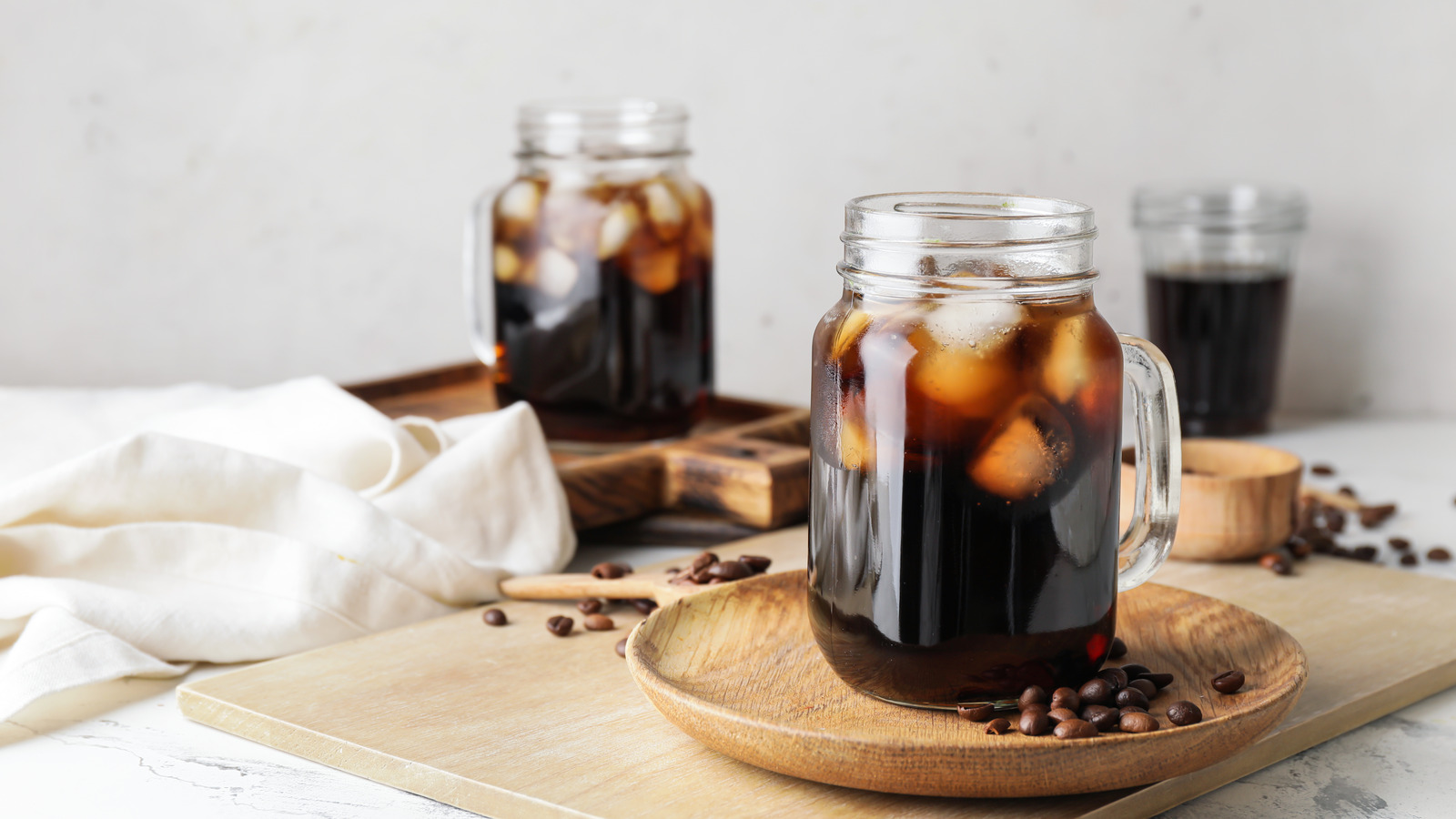
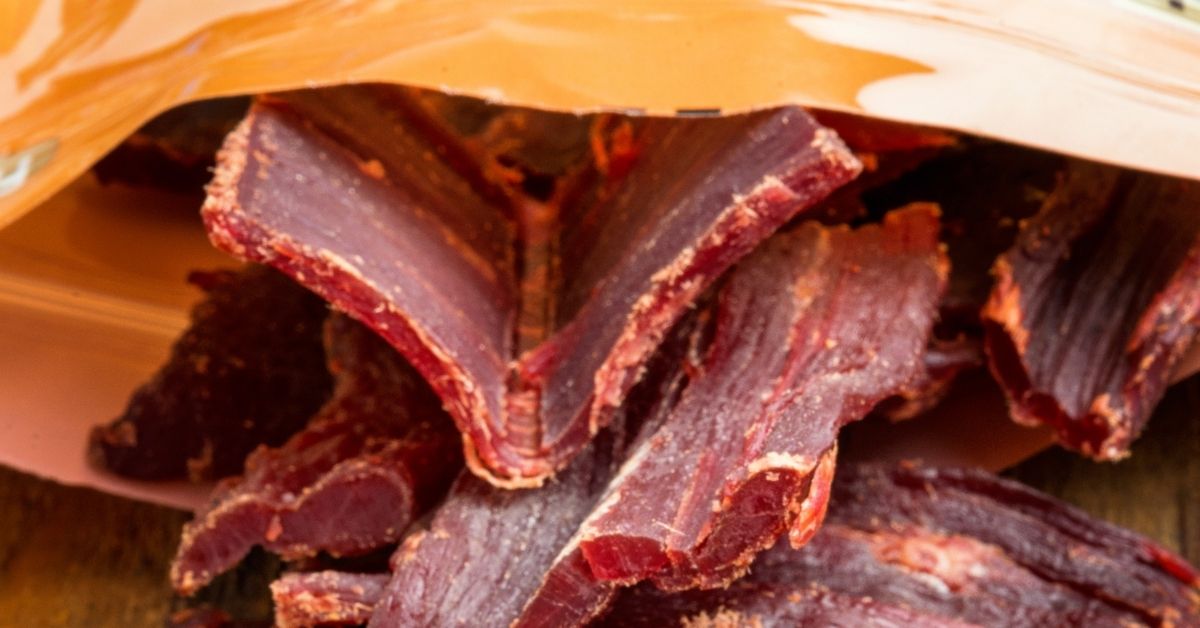
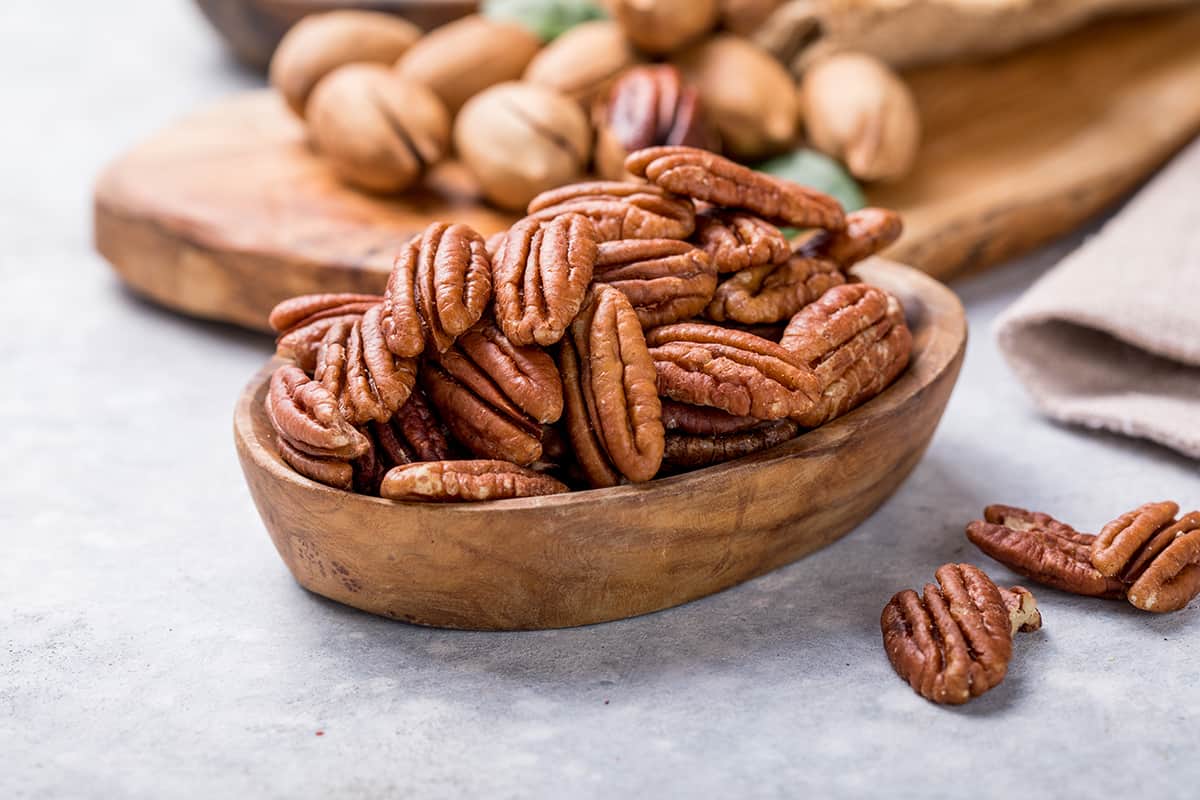
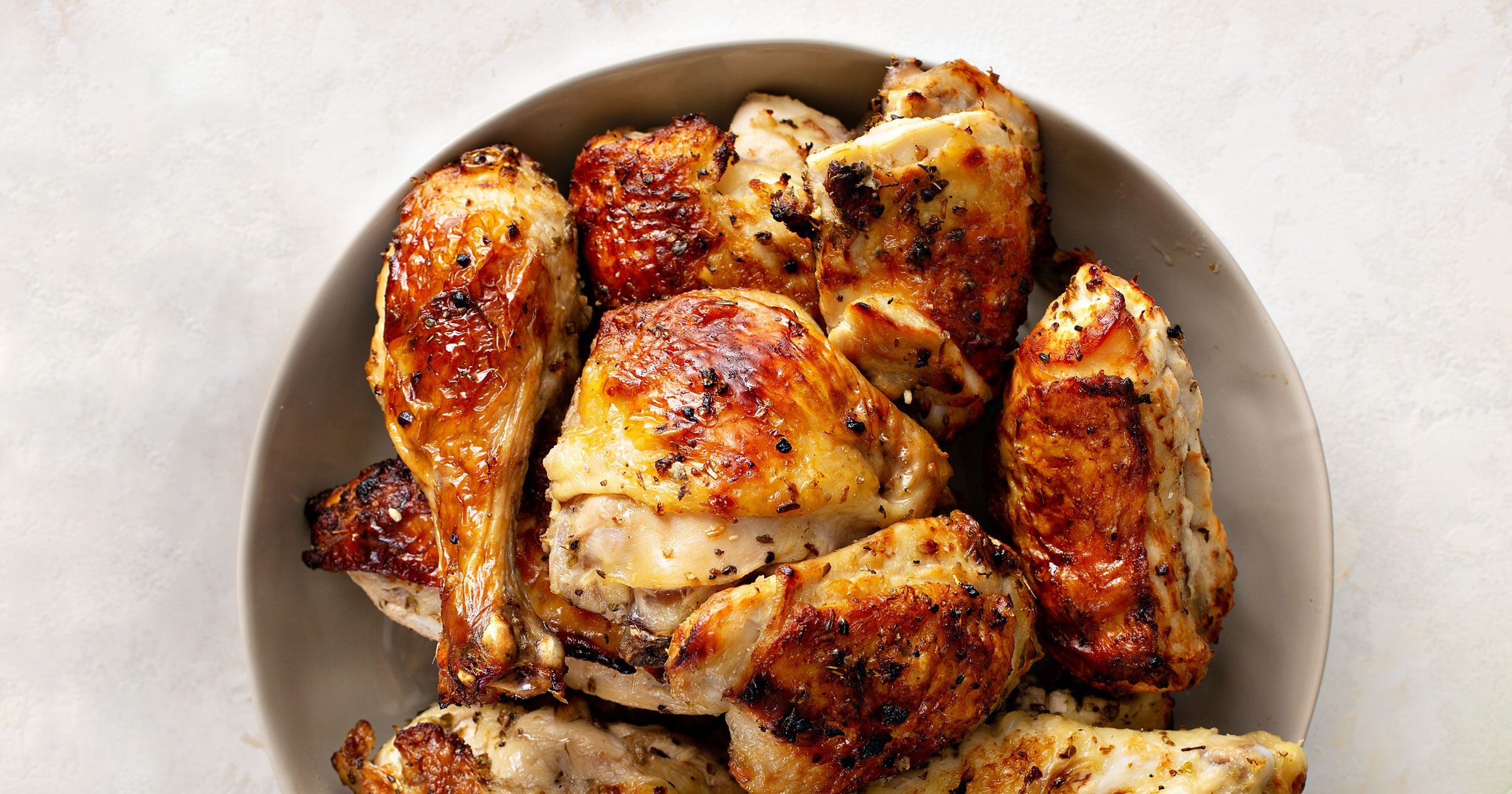
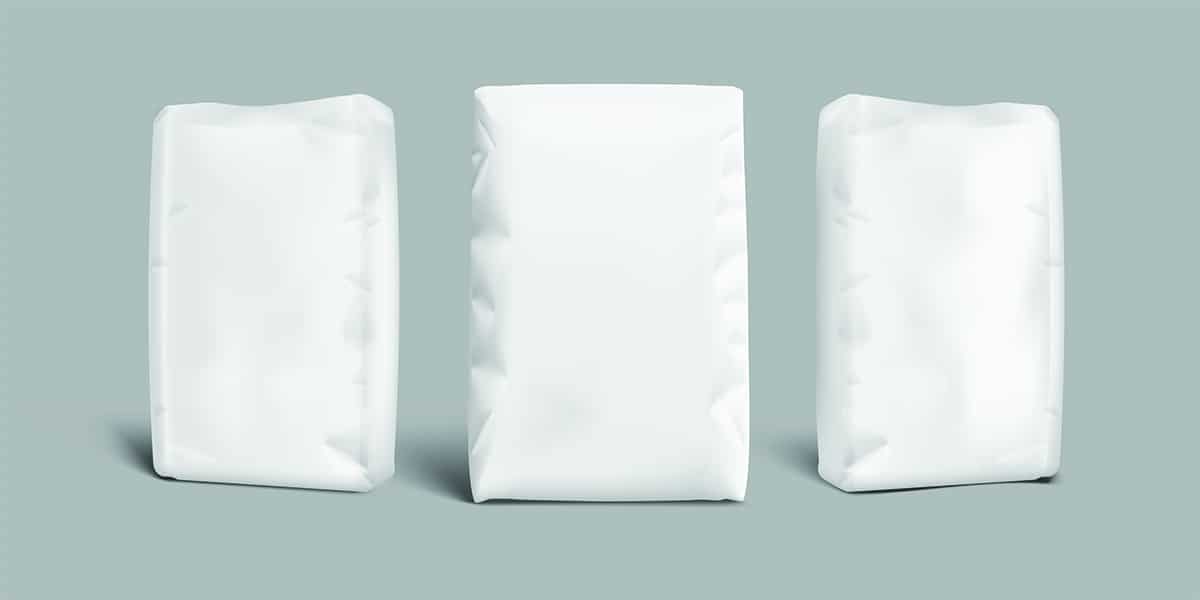
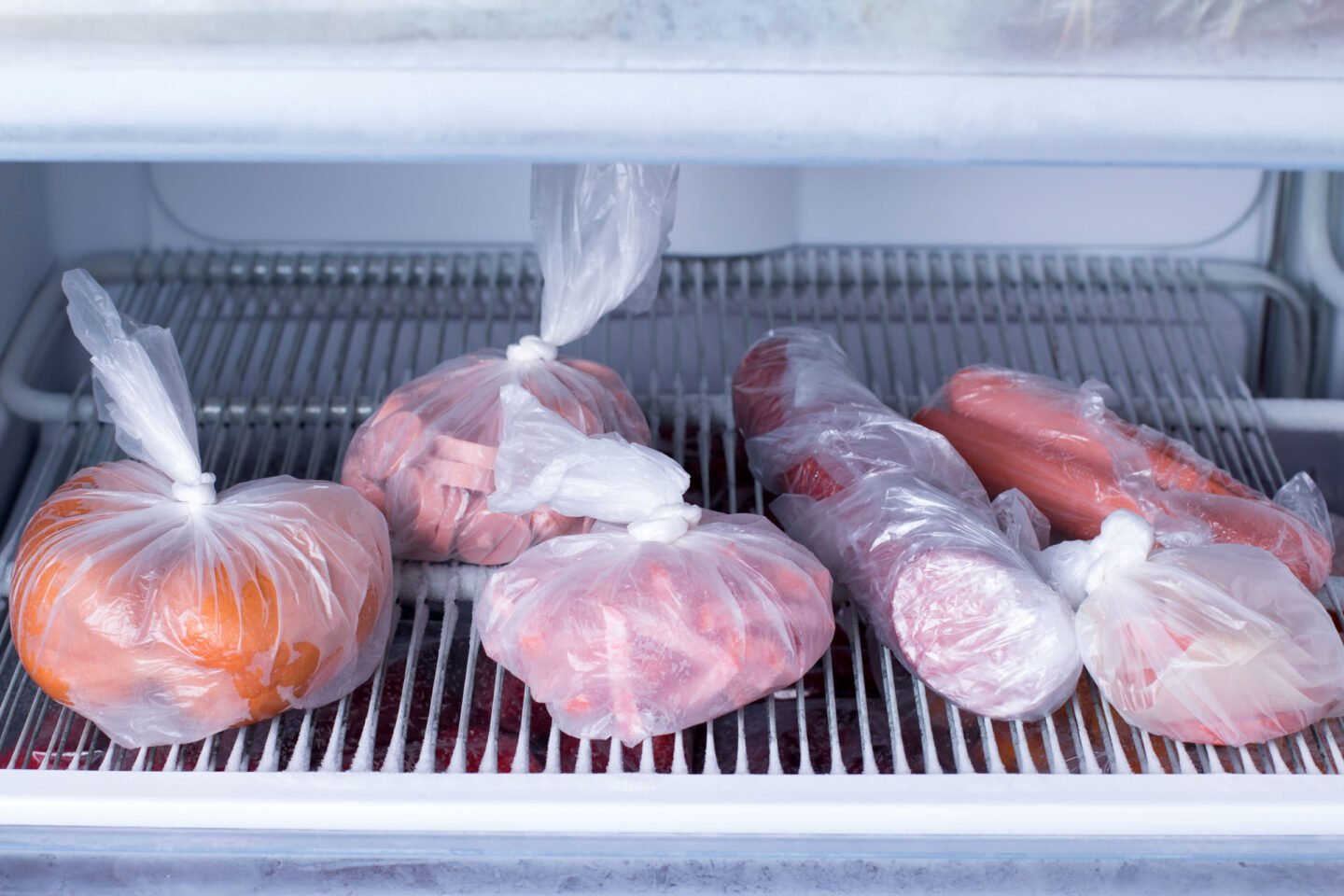
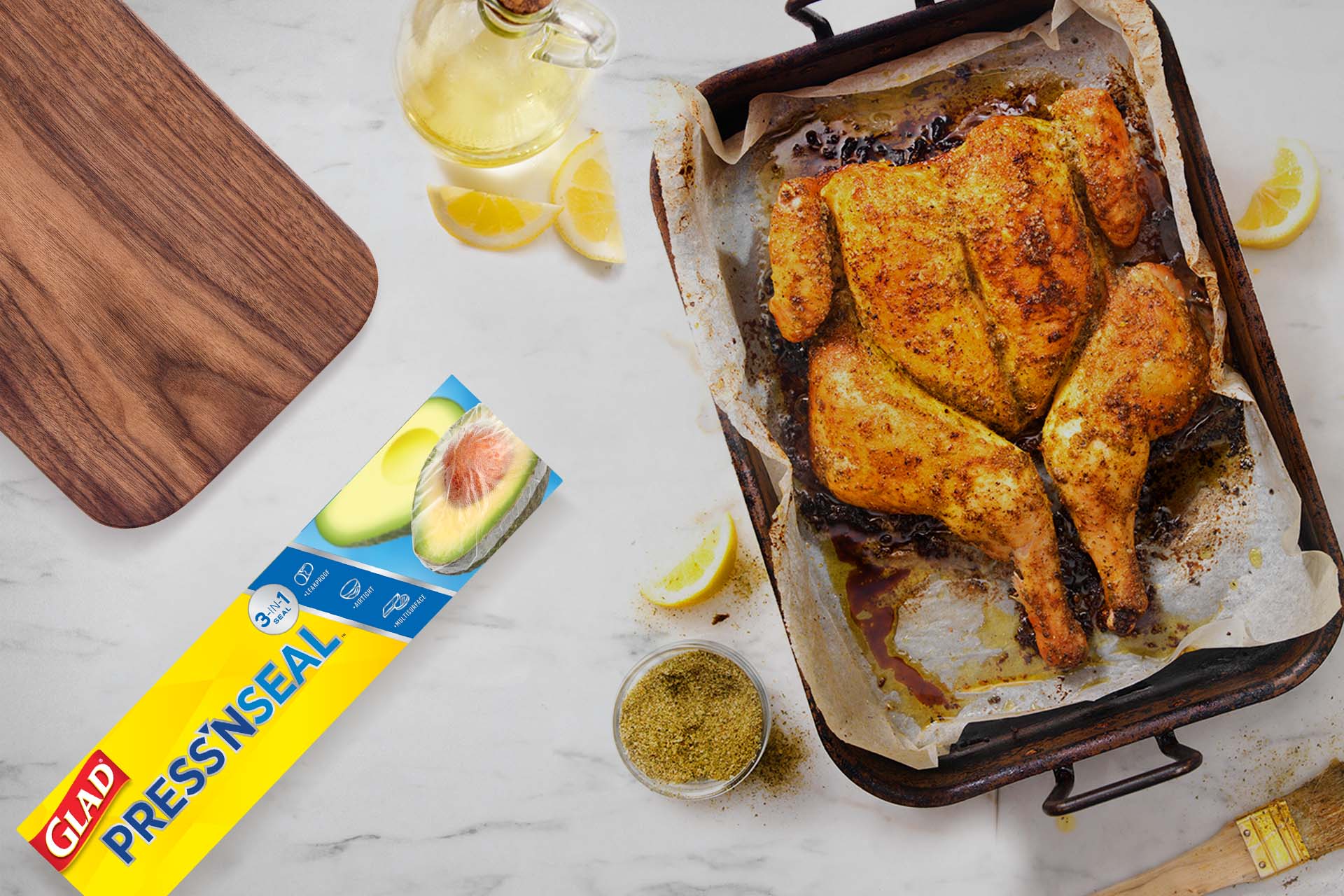
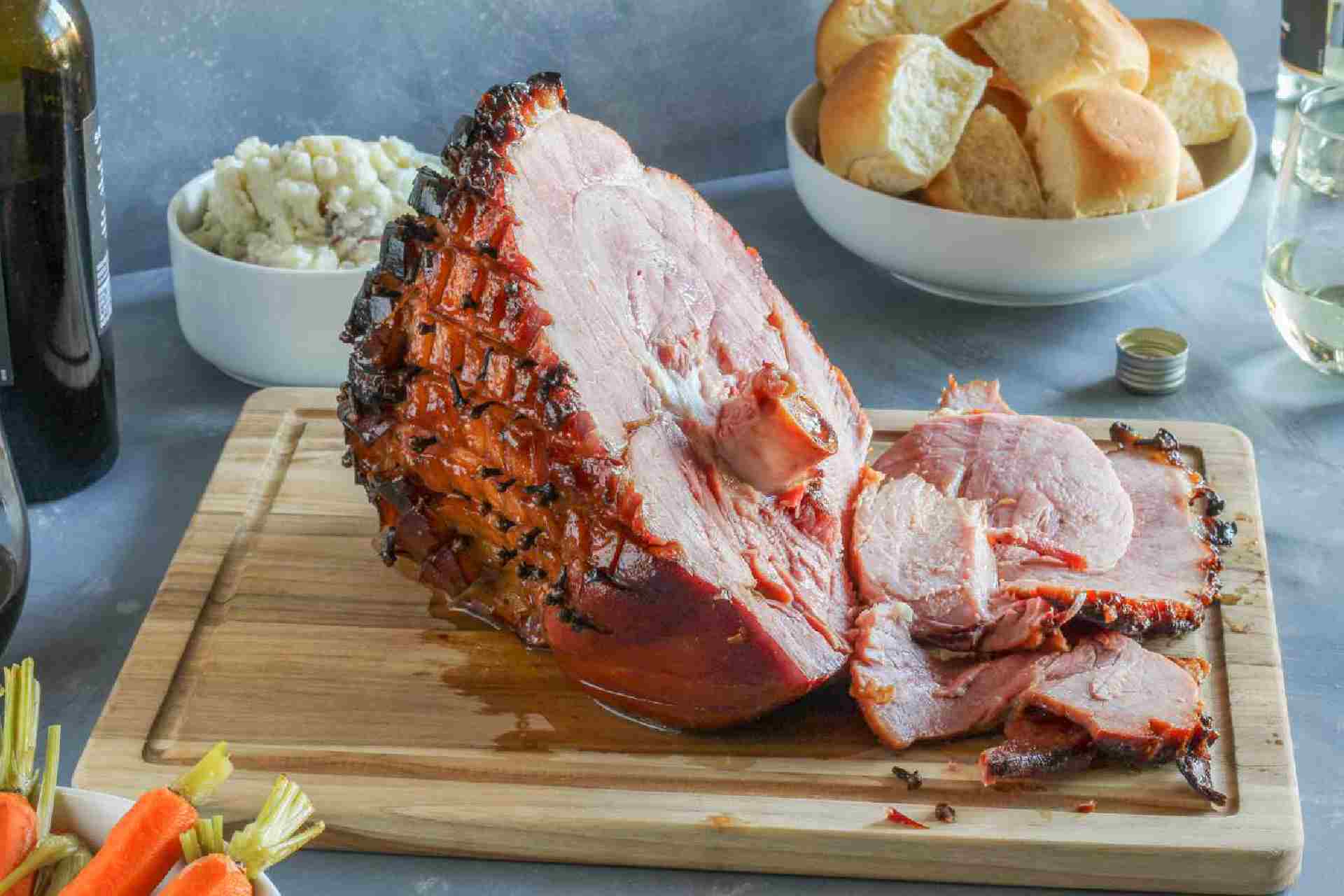
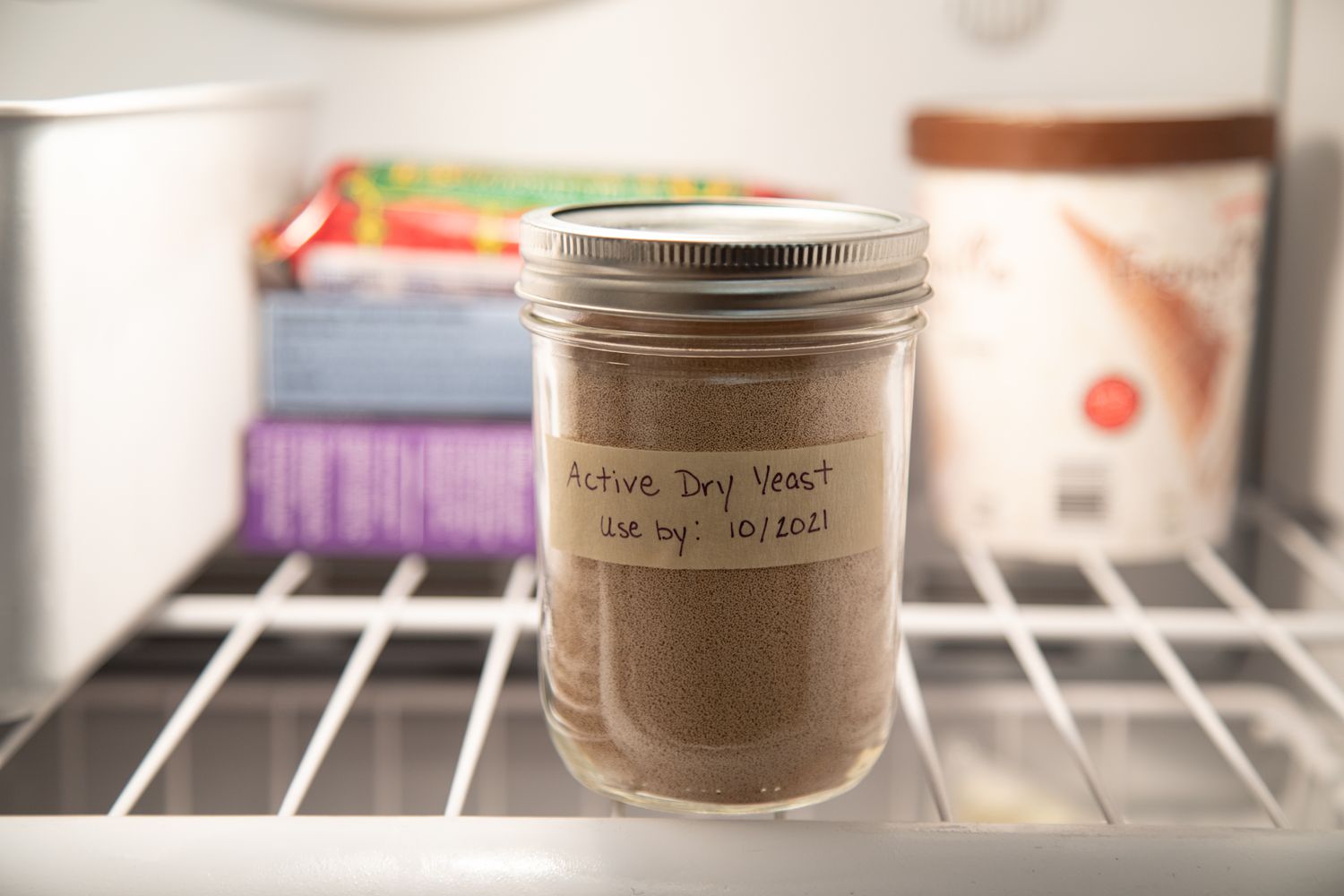
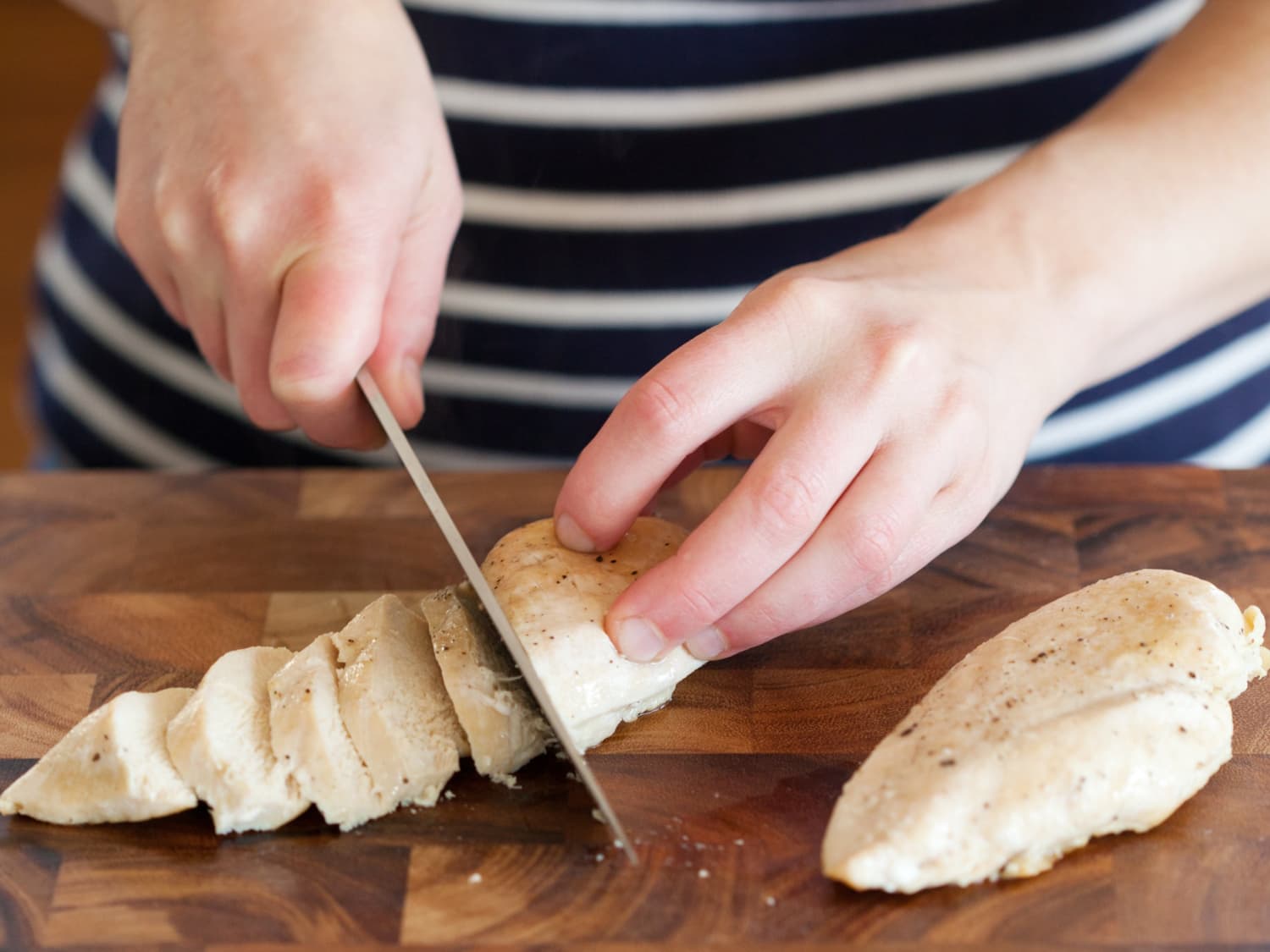
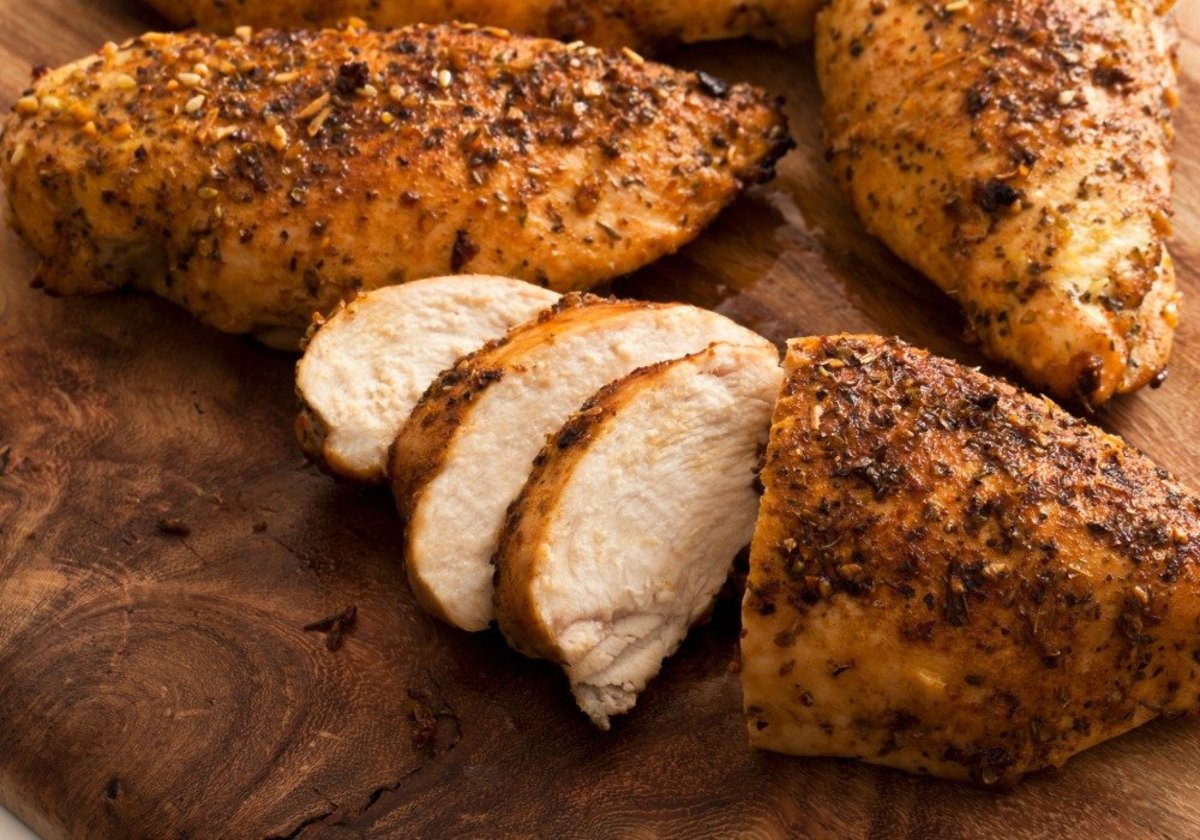
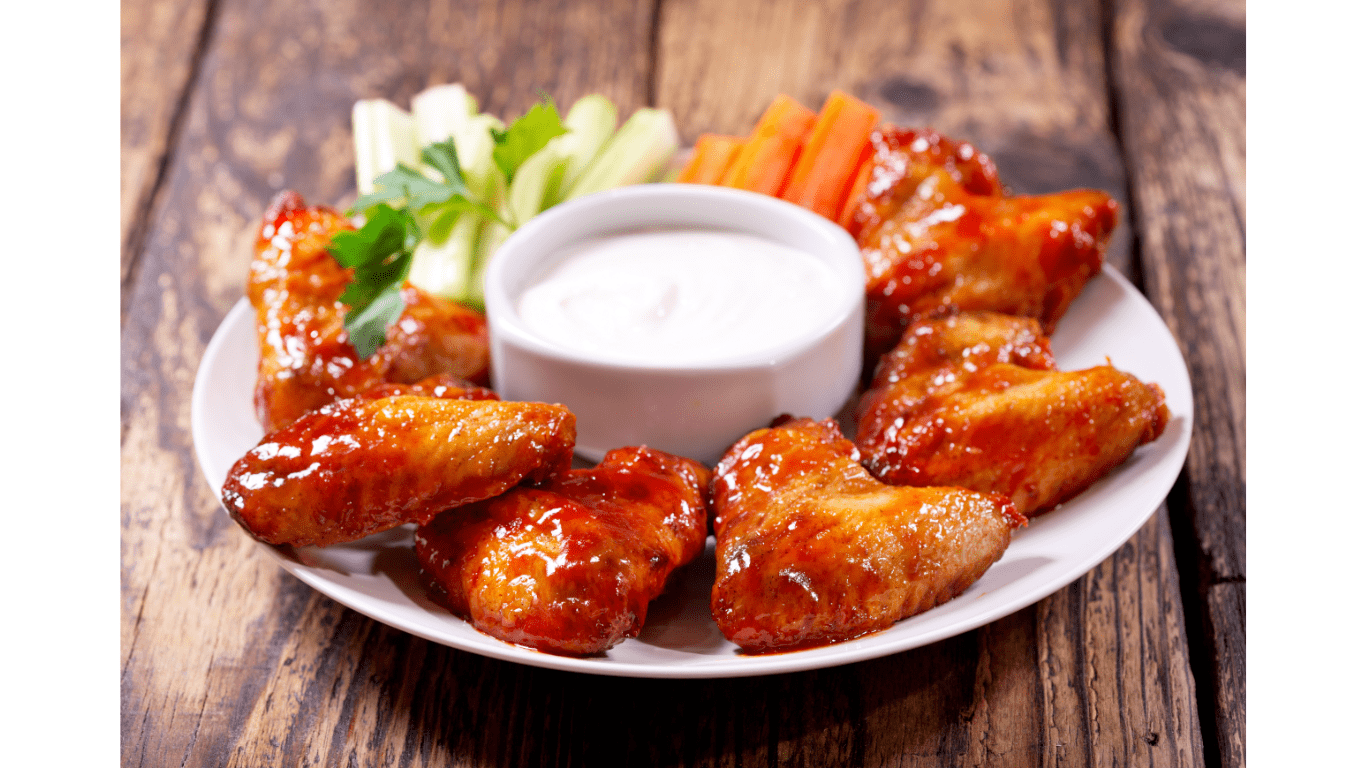

0 thoughts on “How Long Will Cooked Chicken Last In The Freezer”